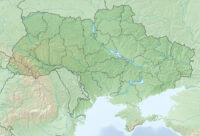 A cruel Trump Administration policy of splitting up immigrant families at the border and the groundswell of protests against it pushed the Summit on Korea off the front pages. The respite did not last long. Already, according to The Guardian (UK) of June
A cruel Trump Administration policy of splitting up immigrant families at the border and the groundswell of protests against it pushed the Summit on Korea off the front pages. The respite did not last long. Already, according to The Guardian (UK) of June
23, “Donald Trump flips on North Korea, declaring country still an ‘extraordinary threat.’”
Two weeks earlier, at their meeting in Singapore, President Trump and President Kim turned a page and made a start on establishing a new kind of US-DPRK relations. Their statement committed the two countries to join their efforts to build a lasting and stable peace regime on the Korean Peninsula. The DPRK committed to work toward the complete denuclearization of the Korean Peninsula. The U.S. and the DPRK committed to recovering POW/MIA remains, including the repatriation of those already identified. President Trump committed to provide security guarantees to the DPRK.
Hyun Lee, a leading Korean-American peace activist, perhaps best summed up the historic meaning of the summit. It was “a historic breakthrough in U.S.-North Korea relations. It signaled a final end to seven decades of hostility and tension and a commitment to establishing normal relations between the two countries. In tandem with steps toward denuclearization of the Korean peninsula, the two countries should move toward complete and irreversible normalization.”
In the days after June 12 what was most dismaying was the response to the Summit declaration among much of the US media (MSNBC, CNN, NY Times, Washington Post and others) and many top elected officials. So eager to deny “credit” to the U.S. Administration for a diplomatic breakthrough, partisan critics voiced skepticism and even opposition. All too often, leading Democrats attacked the Summit agreement from the right. Two senators introduced an amendment to the 2019 National Defense Authorization Act to prevent President Trump from withdrawing U.S. troops from South Korea. The U.S. still has 83 bases in South Korea and some 30,000 troops stationed there.
Some critics asserted Trump “made too many concessions.” Some claimed the agreement “lacked substance.” Some said Trump was “outfoxed” by Kim. According to Fairness and Accuracy in Reporting, an MSNBC host was aghast that the U.S. said it would halt the annual war exercises it conducts with South Korea on North Korea’s doorstep, because doing so is “an absolute jackpot for the North Korean dictator,” “one of the things he wants most on earth,” and now Washington “has just given them that for free, for nothing.”
Reflect for a moment on the insanity of such a position: Two nuclear-armed states, having moved toward possible war for many months, reverse course and take an important step away from the brink, a step that could lead to a completely new path after 65 years of armed confrontation. It ought to be a cause for celebration.
Unfortunately, the hyper-partisans in the U.S. corporate media showed precious little understanding. In our view, all commentary should center on that spectacular achievement and how to build on it.
Fortunately, the rest of the world grasped that the Summit was a “win” for both the U.S. and North Korean sides, to say nothing of a win for humanity as a whole.
If anybody deserves “credit” for the progress so far, it is the Korean people themselves who overwhelmingly supported novel diplomacy between the two Korean states – from an inclusive Winter Olympics, to the April 27 Panmunjom Declaration, to the June 12 summit in Singapore. The international community played a positive role. So did U.S. peace organizations, coordinating through the Korea Peace Network. For example, Women Cross the DMZ made repeated visits to Korea, both the north and the south, building peace together with Korean women. Veterans For Peace helped to write and distribute the People’s Peace Treaty with North Korea, which has been signed by tens of thousands of people in the U.S.
An Open Letter to the Leaders of USA, South Korea and North Korea signed by UFPJ and more than 100 U.S. peace, faith-based, professional, and Korean-American organizations across the country, was released at a UN press conference on March 29, 2018. The letter expressed support for the upcoming inter-Korean and US-DPRK summits, noting that “Dialogue and diplomacy is essential if we are to prevent a war that would likely result in an unthinkable disaster for the Korean Peninsula, the United States and the world….. the planned summits offer the potential for starting a serious process that could move us decisively away from the current crisis.”
Many others mobilized, not least of all the Korean-American community.
As The Guardian story cited above suggests, no Administration with a leader as unpredictable as Donald Trump advised by the likes of John Bolton and Michael Pompeo can be relied upon to build on the hopeful positive step taken at the Summit.
It is essential to emphasize the key role of the people of South Korea. A very large and determined democracy movement brought the current government there to power, rejecting the legacy of authoritarian governments closely tied to the United States. The broad support Moon Jae-in’s government enjoys for its peace initiatives are the strongest force keeping peace negotiations on track, despite the often-erratic conduct of their U.S. negotiating partners. Their actions show that a mobilized population can affect policy at the highest levels.
It is up to all who are concerned with lasting peace and avoiding nuclear conflict to push this peace process forward.


